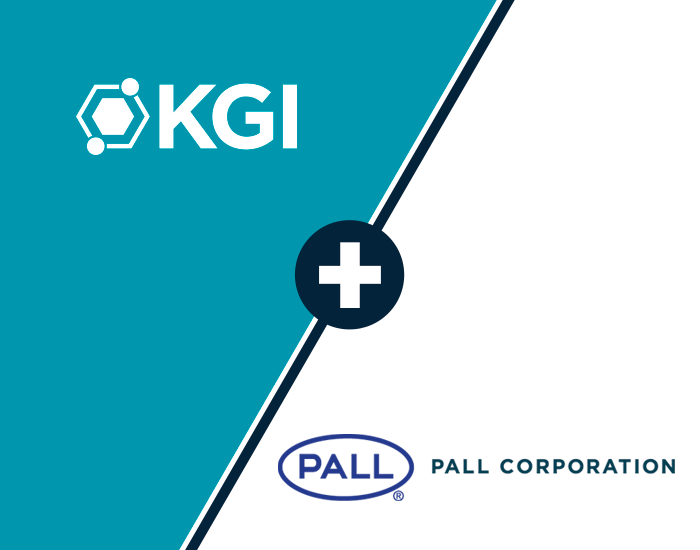Keck Graduate Institute (KGI) has entered into a new partnership with Pall Corporation, a global supplier of filtration, separation, and purification products. KGI and Pall have embarked on a research project on the optimization of a method for plasmid DNA purification.
Plasmid DNA is expressed in a microbial host, producing a template for the production of subsequent medicines such as the messenger RNA for COVID vaccines. Additionally, the plasmid DNA could be utilized on its own as a precursor for gene therapy.
"The plasmid DNA is essentially a building block that could be used in the manufacture of these pharmaceuticals," said Peter Levison, Executive Director of Business Development for Pall, who is responsible for developing strategic partnerships such as the one with KGI. "The students prepare the microbial cells that have produced the plasmid DNA, but now they've got to extract it from the cell and purify it to an acceptable level."
KGI faculty and students conducting the research are Principal Investigator and Professor of Bioprocessing Dr. Hu Zhang, Co-Principal Investigator and Assistant Professor of the Amgen Bioprocessing Center Dr. Saurav Datta, and Research Assistants (RAs) including Jialiang (Kingston) Huang, Cindy Saliba, and Jeeda Al-Taki from KGI's Master of Engineering in Biopharmaceutical Processing (MEng) program. In addition to Levison, Pall employees involved are Leticia Reyes-Regis, Mike Mitchell, Chris Tseng, Kenneth Lee, Andria Balogh, Julie Pressman, and Bivi Mendez.
Pall provides the technological solutions and financial support to accomplish this goal, while the students work on optimizing the methodology. In addition to having skilled KGI students and faculty invested in this project, benefits from this collaboration also come to Pall in the form of strengthening relationships with KGI.
The project helps KGI to establish a robust platform for plasmid DNA purification. Additionally, KGI students gain an enhanced understanding of how a number of Pall's products work as well as hands-on experience working with a global biotech leader. Such a project would benefit them both in obtaining careers in their field and thriving at these careers.
"Hopefully they learn some of our approaches, and they've now got access to Pall Associates whom they can reach out to as they progress on their careers," Levison said. "As the students progress, we will maintain contact with them and offer support if they want advice and opinions."
According to Zhang, the hands-on training and education they gain from this project will be a valuable asset to any company they end up working for within the field.
"The students will gain more exposure to this cutting-edge knowledge, and then upon graduation, they will bring this knowledge back to the industry," Zhang said.
Now—after building everything from scratch—the students will determine how robust the template is over the next few months.
"The most challenging part is performing the analytic techniques with plasmid DNA and determining how to help people quantify the correct amount of plasma DNA and the purity," Zhang said.
Currently, they are testing three different kinds of filters for the purification process, with each type tested four or five times. Having access to these materials is another way in which the partnership benefits KGI.
"Teamwork is critical, and I'm pleased to say that a solid team has formed with KGI," Levison said. "This bodes well for future projects."
